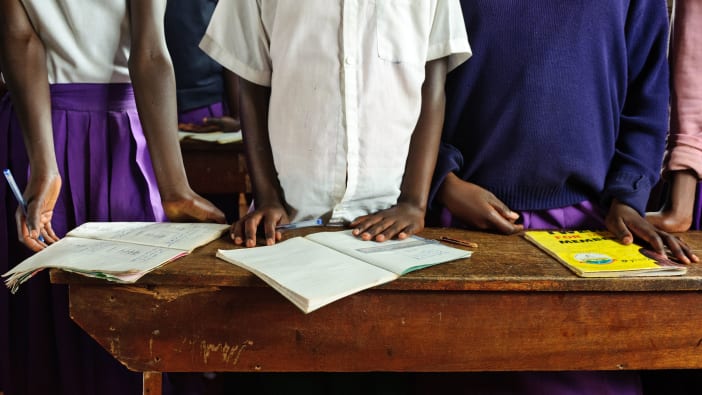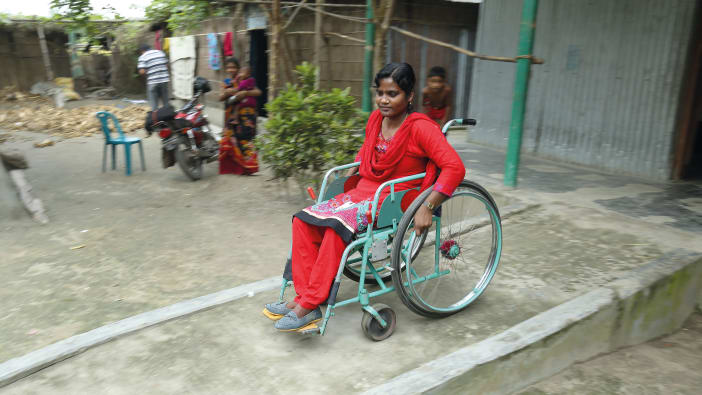by Susie Hart.
In 1997 I spent three months at a L’Arche community in Kampala, Uganda. L’Arche is a Christian organisation that provides a lifelong family environment for people with learning difficulties, living together with one another and their carers. Many of their communities have craft workshops to provide income and useful activities for their members. When I arrived, equipped only with a small bag of candle making equipment, I found to my dismay there was no workshop and I was expected to start one!
I searched Kampala for improvised equipment and raw materials. I taught candle making to the residents and trained two of the staff and found local markets for the candles produced.
We devised various aids to help those with physical disabilities to participate as much as possible. However because candle making involves hot wax, some community members had to be excluded. The raw materials for the candles were expensive and had to be imported from Nairobi. This meant our products were usually restricted to more expensive retail outlets providing for tourists. These concerns encouraged me to identify a craft that allowed all community members to participate and which used readily available, cheap, local materials.
I found the answer in handmade paper products using the troublesome water hyacinth (a weed that spreads rapidly in fresh water). The plant was freely available for anyone to collect. The process of making paper from plant materials is simple, but involves various stages, each requiring different skills. This made it ideal, as each community member at L’Arche was able to participate in at least one of the stages. There were several weeks of experimentation with water hyacinth before we began to develop good quality paper. Sadly this work has now been discontinued, though groups elsewhere successfully produce good quality products using water hyacinth.
However the candle workshop is still doing well and expanding. It provides a significant income for the community in Kampala. Considering the short time available for planning and establishing the work, maybe its success should be seen as the power of prayer! Many lessons can be learnt from these experiences however. Some are suggested below for any other group considering setting up such a project.
Planning
- Analyse the situation. What are the actual needs in the community? What impact will the project have? What other activities have been tried?
- Decide on the objectives of the project; who will benefit, resources needed and the time scale involved
- Carefully consider risks that may affect the project
- Plan how to monitor and evaluate the effectiveness of the project.
Participants
- Involve participants at every stage of planning, decision making and running the project wherever possible
- Be realistic about the abilities of the participants
- Choose crafts that will involve teamwork and full participation by all
- Consider how people will be paid for their work. Guaranteed wages may seem a good idea but they may produce dependency.
Marketing
- What demand is there for your products?
- Who are your likely buyers – local people, tourists, overseas market?
- What sale outlets will you use?
- What transport will you need?
- Will you rely on charitable buying? Be aware this is a kind of subsidy and may not be sustainable
- Consider the competition. Will your project put other people out of work?
Raw materials
- Are materials locally available from a cheap and sustainable source?
- What is the environmental impact of using such materials? _ Is recycled material an option?
- Networking – can you link up with a similar project to buy materials in bulk?
Skills
- What skills already exist?
- Are there local craft workers who can help with training or volunteer their help and advice?
- Train staff well in all aspects including technical, managerial, financial and marketing to maintain sustainability.
Susie Hart is trained in textiles and has experience of working with craft workshops for people with disabilities in both UK and Africa. Her address is: c/o Crowther Hall, Weoley Park Road, Sellyoak, Birmingham, B29 6QT, UK.
E-mail: [email protected]








